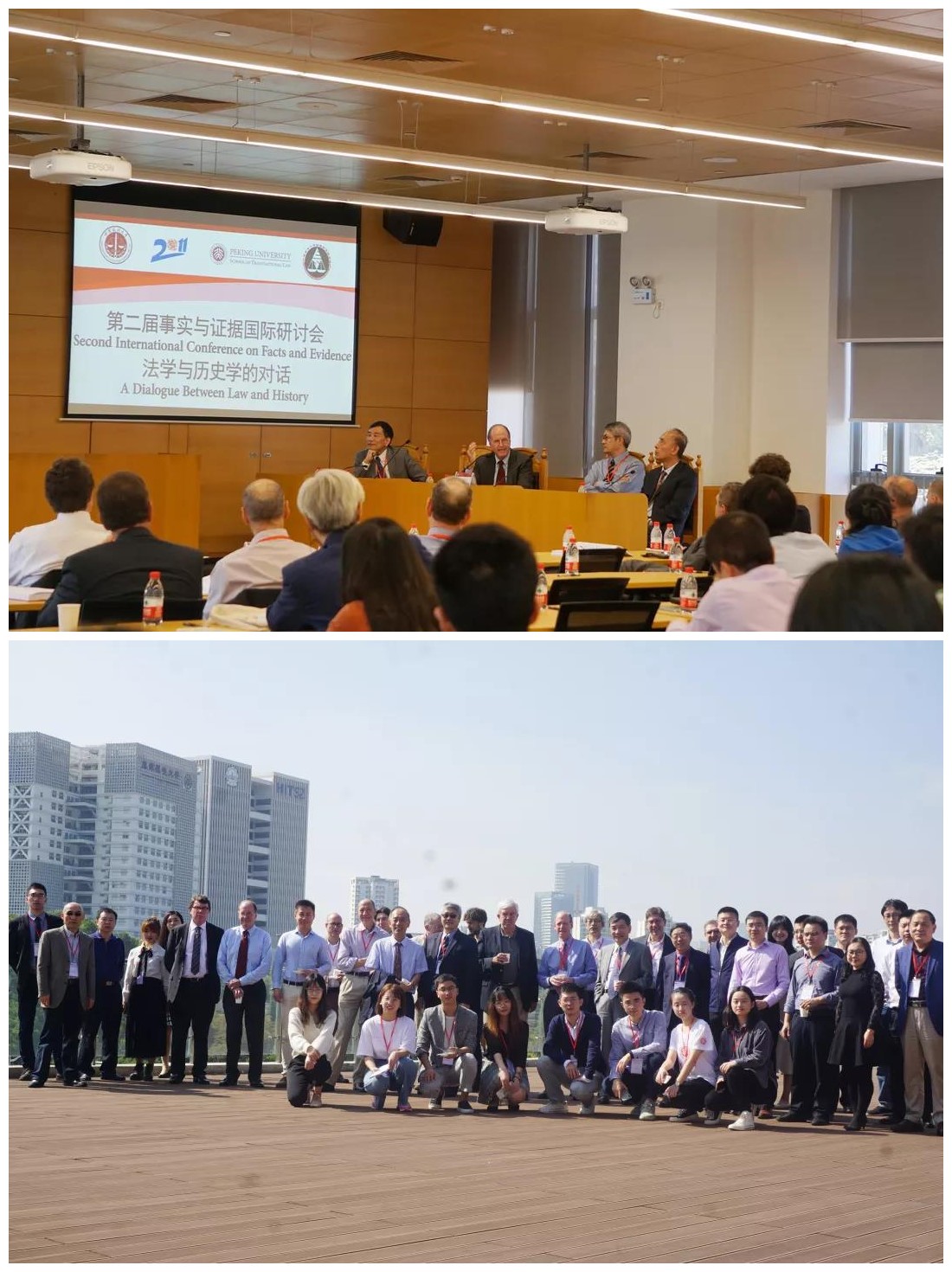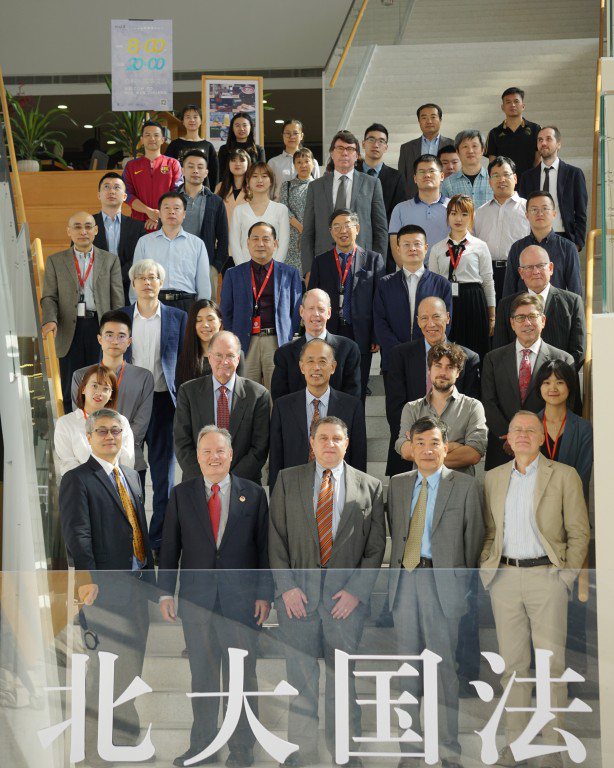On November 16-17, 2019, the Second “International Conference on Facts and Evidence — A Dialogue between Law and History” was successfully held at Peking University School of Transnational Law (STL) in Shenzhen. The conference was co-hosted by the “2011 Plan” – the Collaboration Innovation Center of Judicial Civilization, STL, and the Institute of Evidence Law and Forensic Science of China University of Political Science and Law (Key Laboratory of Evidence Science, Ministry of Education). The conference built on the success of the workshop held at STL on September 14-15. Under the same theme, that workshop brought together more than 20 distinguished jurists and historians from around the world to explore issues relating to fact-finding in the judicial process and historical research.
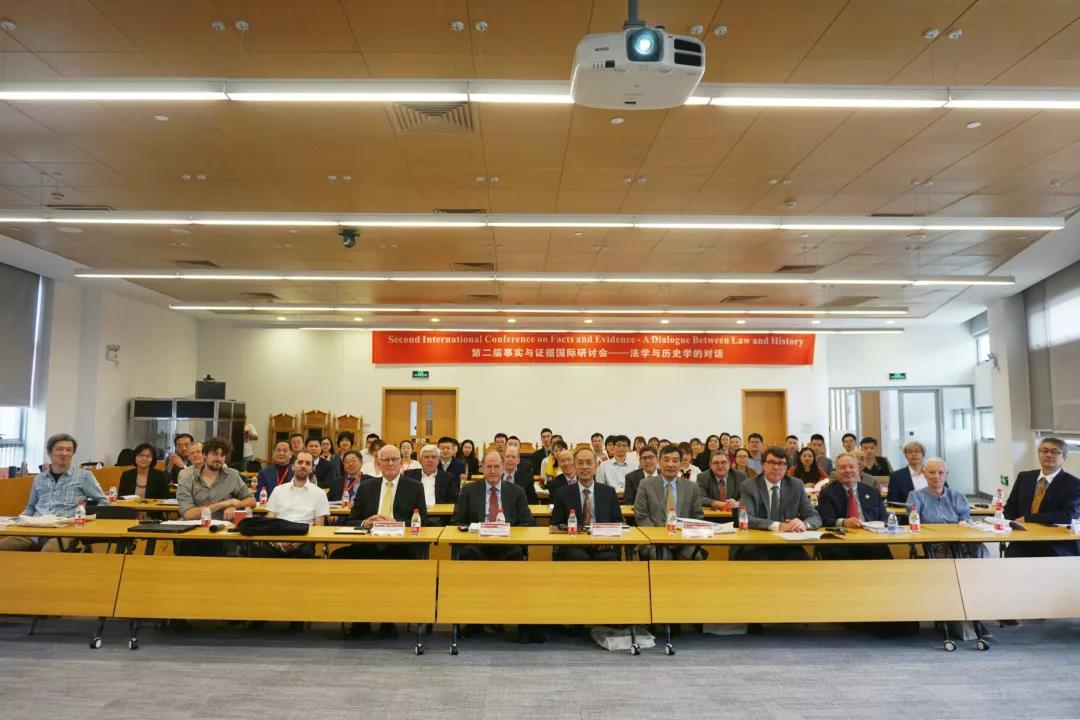
STL Dean Philip McConnaughay, China University of Political Science and Law Professor Zhang Baosheng and STL Professor Thomas Y. Man all delivered opening remarks expressing their warm welcome to all the participants and confirming the significance of the conference’s theme.

The conference consisted of six sessions. The first session explored major themes in law and history and was moderated by Q. Edward Wang, Professor of Rowan University. Professor Ronald J. Allen from Northwestern University commenced by reflecting on fact-finding in history, science and law, emphasizing points of difference and commonalities. Subsequently, Zhang Baosheng, Professor of China University of Political Science and Law made a comparison between fact-finding methodologies in evidence law and history. He emphasized that in evidence law evidential reasoning establishes a relationship between factual premises and judgment conclusions, and gave a detailed illustration of “the Inference of Best Explanation.” In response to that, Zhang Xupeng, Professor of Chinese Academy of Social Sciences discussed the use of evidence by historians. He thought that historians should explore the cultural meaning behind evidence. He also discussed how to use evidence typically not perceived as such to reconstruct the past.
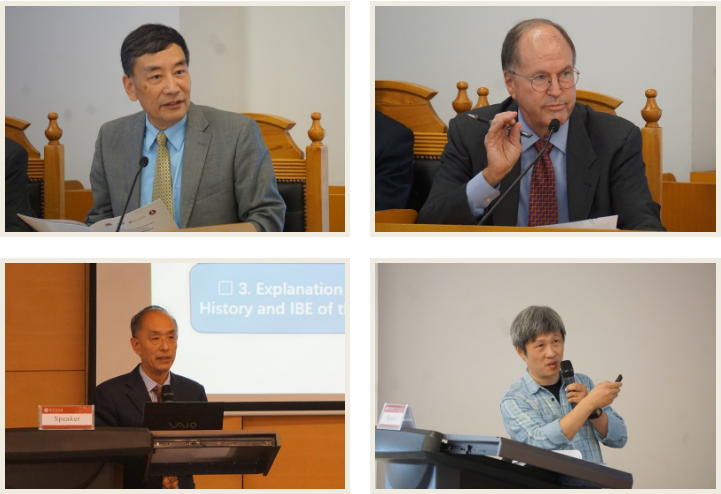
STL Professor Francis Snyder moderated the second session “Facts and Proof: Concepts and Application.” Professor Clinton W. Francis from Northwestern University began by introducing the paradoxes and inefficiencies in modern judicial proof. He then explained the Semiotic Cycle and History of Language Development models in detail. He proposed that the paradox can be solved by increasing meta-communication. Professor Shu Guoying from China University of Political Science and Law analyzed three core concepts in law and history: facts, evidence and proof. He pointed out that “fact” belongs to the field of epistemology and needs to be proven by cognition. Finally, Aviezer Tucker, Associate Researcher of Davis Center for Russian & Eurasian Studies at Harvard University, discussed the generation of probable facts from testimonies in jurisprudence and historiography. He emphasized that multiple testimonies can generate more probable knowledge than each one and innovatively created a three-stage modular inference method.
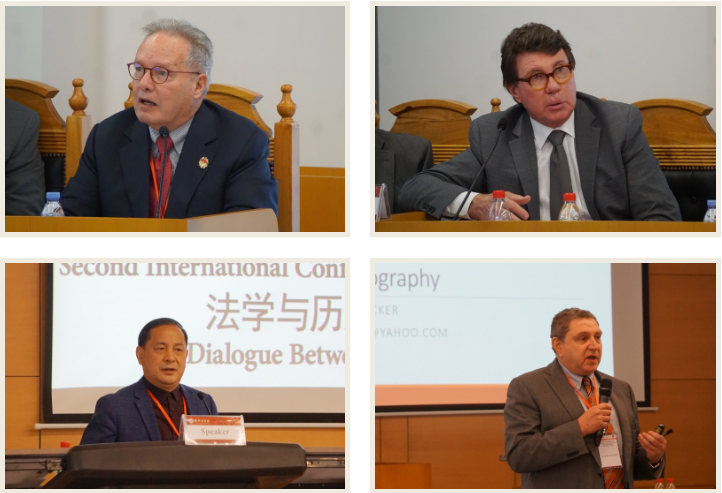
The third session focused on “Evidence and Facts: Perspective from History” and was moderated by Zhao Lei, Professor of Chinese Academy of Social Sciences. Rowan University Professor Q. Edward Wang explored the use of oral testimonies through a case study of “comfort women.” Traditional view downplayed comfort women’s oral testimonies, but critiques from feminist scholars led by Chizuko Ueno urged both historians and jurists to reconsider the meaning of “facts.” University of Udine Professor Edoardo Tortarolo explored what “historical fact” is. He concluded that the notion of historical fact is itself a historical entity. He argued that historical and legal studies pursue different pragmatic and epistemic agendas. Legal facts have a direct performative consequence while historical facts only have indirect performative consequence. Tsinghua University Professor Zhong Weimin illustrated the subjectivity of historical study through distinct comments from historians towards Qishan. He also pointed out that subjectivity is inevitable in law. Bielefeld University Professor Zoltan Simon drew a distinction between judging the past and blaming the past and analyzed the risks of opting for the imprescriptible and toning down the sense of morality.
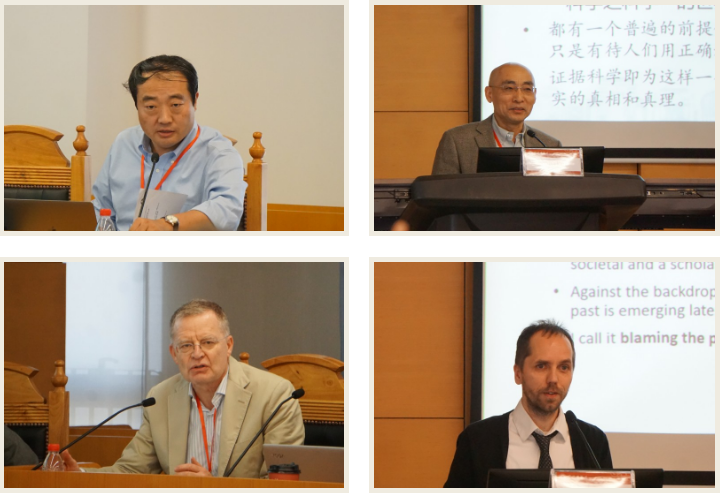
Under the theme of “Evidence and Facts: Prospective from Law”, the fourth session was moderated by STL Professor Mark Feldman. The session began with Professor David L. Faigman from University of California Hastings College of Law delivering his speech on fact-finding in constitutional decision-making. He distinguished between different kinds of facts concluding that constitutional doctrinal facts are part of law-making and should not be allowed to be considered by lower courts in subsequent cases, while constitutional reviewable facts and adjudicative facts apply uniquely to a particular litigation. Professor Raymond L. Solomon from Rutgers University analyzed the Elaine Massacre in America. Different narratives adopted by lawyers and reporters reflected the differences in treating evidence between law and history. Peking University Doctor Wang Ruijian, on behalf of Professor Chen Ruihua, discussed how to verify facts in criminal cases in China. He proposed an appropriate “grafting” between the subjective standard of “reasonable doubt” and the objective standard of “insufficient evidence.” Finally, Professor Stephan Landsman from DePaul University took the development in England’s Old Bailey Criminal Court during the eighteenth century to illustrate the development of adversarialism in England. He also analyzed the benefits as well as risks of the new adversarialism.
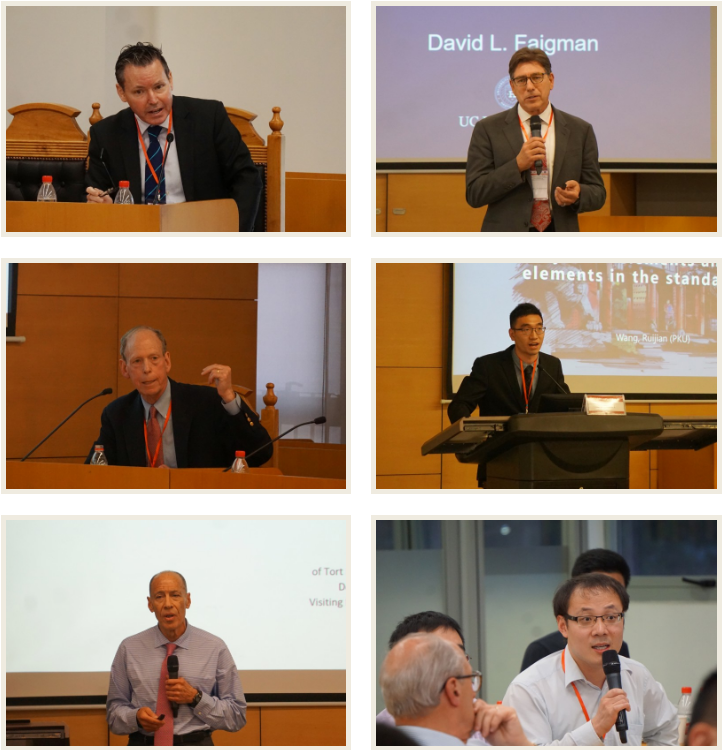
The fifth session focused on “Case Studies in History and Law” and was moderated by STL Assistant Professor Stephen Minas. The session began with Assistant Professor Berber Bevernage from Ghent University delivering his speech on The Adjudication of ‘Historic Injustice’ in Case Concerning the Former British Empire(2000-present). He pointed out despite some remarkable successes most of the colonial historic justice cases brought before UK courts remain unsuccessful and most British judges remain highly skeptical about cases venturing into historic justice. Professor Chen Jingliang from South Central University of Finance and Law delivered his speech which focused on Factual Cognition and Legal Reasoning in the Judicature of the Song Dynasty from the perspective of knowledge. Nanjing Audit University Doctor Chen Suhao discussed Plea Bargaining at the ICTY, rethinking its role in the process of fact finding at the ICTY. Tianjin Normal University Associate Professor Feng Jinpeng discussed the presumption of Guilt in the Trial of Socrates. He adopted a historical method and analyzed the particularities of Scoratic presumption of guilt.
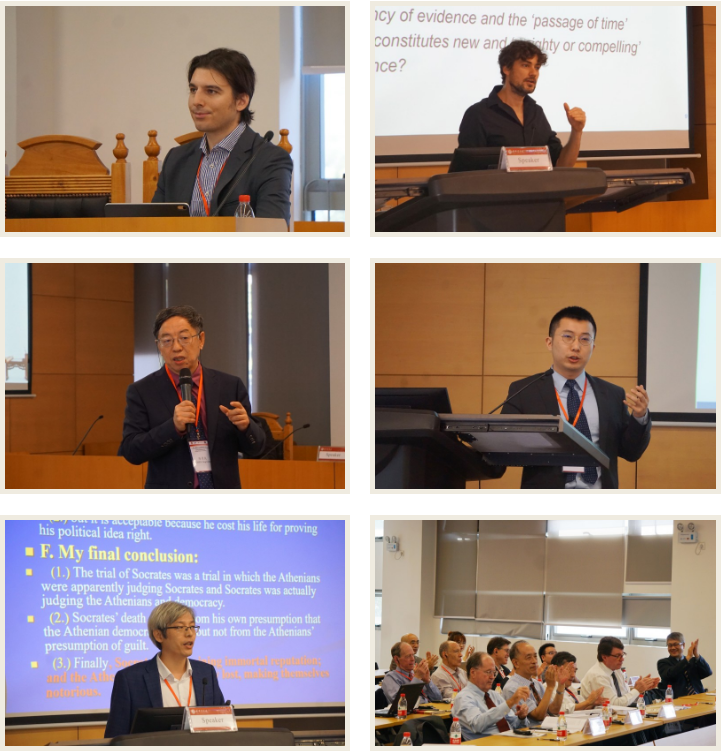
Under the theme of “Seeking Truth in Law and History” the sixth session was conducted by Associate Professor Lin Jing from China University of Political Science and Law. Bard Graduate Center Professor Peter N. Miller focused on Objects as Facts. He cited various literature from China and foreign countries to present his research that objects are a particular kind of fact. STL Professor Thomas Y. Man’s speech was about Truth in History and in Law: Factfinding in Cross-disciplinary Context. He focused on the historical figure of Aaron Burr and proceeded to elaborate on factfinding in the court of history and of law. Professor Zhang Luping from China University of Political Science and Law focused on Chasing truth from the perspective of history, analyzing the effect of the textual development process on the narration of case facts before it is finally ascertained in trial.
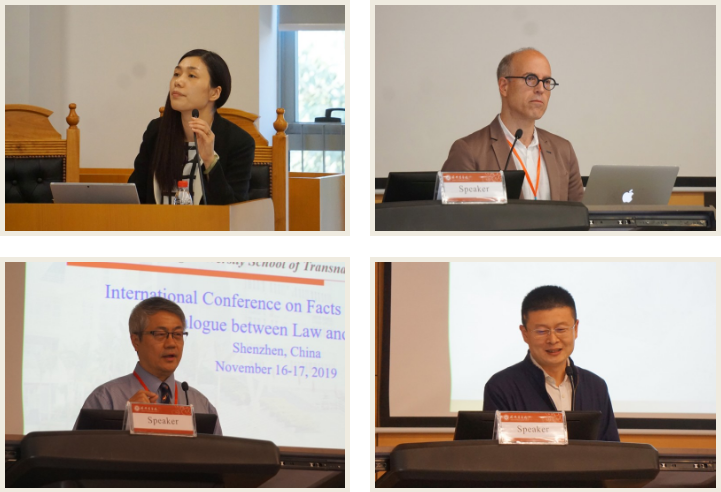
In the closing ceremony, Moderator Zhang Baosheng invited three honored guests to deliver the closing remarks. Professor Ronald J. Allen from Northwestern University expressed his gratefulness to the committee which organized this international conference. Rowan University Professor Q. Edward Wang summarized the achievements of this two-day conference. STL Professor Thomas Y. Man expressed his thankfulness to all the people who have contributed to the successfulness of holding this international conference and his expectation to holding similarly meaningful conferences in the future.
